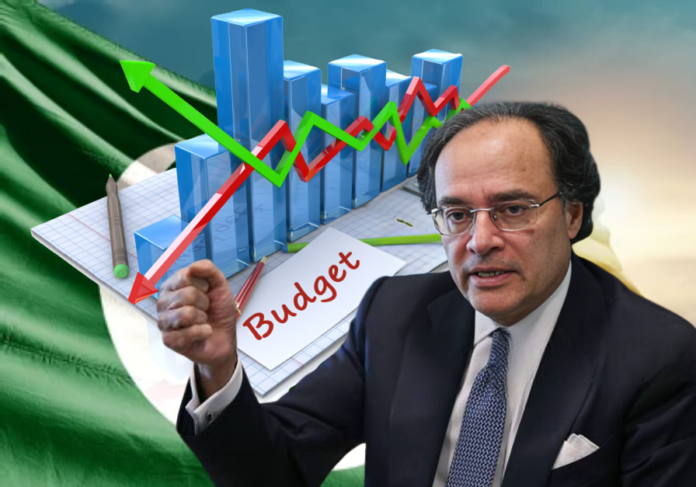Pakistan Inflation Rate 2024 is a key topic of discussion as the Finance Ministry has ruled out any mid-year adjustments to the national budget. This decision comes amid reports of positive economic indicators, which the government believes could stabilize the inflationary trends in the country. The ministry’s stance has garnered attention, especially in light of the fluctuating economic landscape that Pakistan has experienced in recent years.
Pakistan Inflation Rate 2024: Overview and Insights
The Pakistan Inflation Rate 2024 has shown signs of improvement, with officials expressing optimism about the economic outlook for the remainder of the year. The Finance Ministry highlighted several factors contributing to this positive sentiment, including recent fiscal policies, improvements in trade balances, and increased remittances from overseas Pakistanis. Despite the prevailing challenges, the government remains committed to maintaining fiscal discipline without resorting to drastic budgetary measures.
Understanding the Current Economic Climate
The government’s approach to the Pakistan Inflation Rate 2024 reflects a broader understanding of the current economic climate. Recent statistics indicate a gradual decrease in inflation rates, which could signify that previous measures to control prices are beginning to take effect. According to the latest data from the Pakistan Bureau of Statistics, inflation has dipped slightly, raising hopes for continued economic recovery.
Key Economic Indicators
Several economic indicators have contributed to the Finance Ministry’s optimistic outlook. Among these, the stability of the Pakistani Rupee against major currencies has been a crucial factor. The currency’s stability is essential for reducing import costs and curbing inflationary pressures on essential goods. Moreover, a slight uptick in foreign direct investment has also been reported, signaling increased confidence from international investors in Pakistan’s economic prospects.
The Role of Government Policies
Government policies have played a significant role in shaping the Pakistan Inflation Rate 2024. The current administration has implemented measures aimed at streamlining tax collection and enhancing revenue generation. These efforts are crucial not only for supporting the national budget but also for fostering a conducive environment for economic growth. Additionally, initiatives to boost the agricultural sector have been prioritized, as agriculture remains a vital component of Pakistan’s economy and is directly linked to food inflation.
Public Sentiment and Economic Realities
Despite the optimistic outlook from the Finance Ministry, public sentiment regarding inflation remains mixed. Many citizens continue to feel the pinch of rising prices, particularly for food and essential commodities. Consumer prices have remained high, prompting discussions about the effectiveness of government interventions in addressing inflation. The disconnect between government optimism and public experience highlights the complexities of managing an economy where external factors also play a significant role.
Government Initiatives to Combat Inflation
In response to the public’s concerns, the government has initiated various programs aimed at providing relief to lower-income households. These include targeted subsidies on food items and enhanced social safety nets for vulnerable populations. By addressing the needs of those most affected by inflation, the government aims to build public confidence in its economic management strategies.
Challenges Ahead
While the Finance Ministry remains optimistic about the Pakistan Inflation Rate 2024, several challenges lie ahead. Global economic conditions, such as fluctuations in oil prices and geopolitical tensions, could impact Pakistan’s economy significantly. Additionally, internal issues such as political instability and security concerns may hinder economic progress if not addressed adequately.
The Future of Pakistan’s Economy
Looking forward, the Finance Ministry plans to continue monitoring economic indicators closely to inform future policy decisions. The government’s commitment to fiscal discipline will be tested as it navigates the delicate balance between encouraging economic growth and controlling inflation. Stakeholders, including businesses and consumers, will be watching closely to see how these dynamics play out in the coming months.
What Lies Ahead for Pakistan’s Inflation
As we analyze the Pakistan Inflation Rate 2024, it is clear that the Finance Ministry’s optimism stems from a combination of improved economic indicators and strategic government policies. While the ministry has ruled out any mid-year budget changes, the focus will remain on sustaining economic growth and managing inflation. It is essential for the government to remain responsive to the public’s needs while pursuing broader economic objectives.
In summary, the outlook for the Pakistan Inflation Rate 2024 remains cautiously optimistic. The effectiveness of current policies and the ability to adapt to changing economic conditions will be crucial in determining the trajectory of inflation and overall economic stability in the country. The Finance Ministry’s commitment to monitoring and adapting its strategies will be vital as Pakistan moves forward in a challenging yet hopeful economic environment.
Pakistan’s inflation rate fell to 17.3% in April 2024, the lowest in nearly two years, as reported by the Pakistan Bureau of Statistics (PBS). This decline is attributed to efforts by the Pakistan Democratic Movement government, with expectations of further easing in inflation rates. Month-on-month inflation decreased by 0.4%, marking the first negative growth since June 2023.


